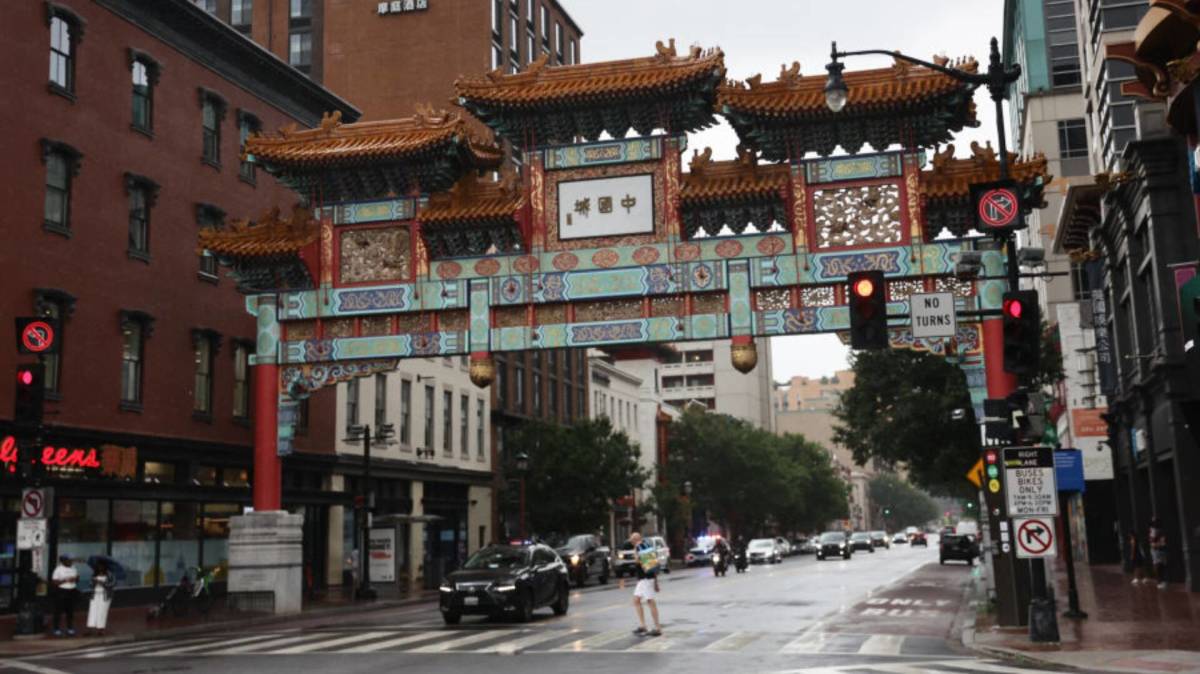Anyone who has lived in one of America's larger cities has probably experienced an ethnic neighborhood like Chinatown in San Francisco (or New York or Washington, D.C.), Little Italy in New York, or Polish Downtown in Chicago.
Enclaves like these were historically places where immigrants could find social networks and the comforts of their homeland — from food to houses of worship — while also preserving and celebrating culture.
💵💰Don't miss the move: Subscribe to TheStreet's free daily newsletter💰💵
These ethnic neighborhoods also helped refugees and immigrants find jobs, according to a 2019 Stanford study.
Chinatowns formed for a uniquely compelling reason: Well into the 20th century, Chinese immigrants were excluded from the rest of society thanks to the Chinese Exclusion Act (repealed in 1943), and they responded by building their own mini-cities within major metropolises.
Today, there are at least 50 Chinatowns across the country. They stand as symbols of resilience — and also as reminders of how immigrants were forced to adapt in the face of hostility in the U.S.
Now, Chinatowns are shrinking across the country, and the city with the biggest risk of losing its special enclave altogether is the nation's capital.
Washington, D.C.'s Chinatown lost two more small businesses
For decades, Full Kee Restaurant and Gao Ya Hair Salon stood as quiet fixtures in Washington, D.C.'s Chinatown. This month, both closed for good, casualties of the city's relentless redevelopment boom.
In early July, the two legacy businesses shuttered to make way for a $75 million Marriott Tribute Hotel.
Their exit leaves D.C.'s once-thriving Chinatown with just a handful of remaining Asian-owned storefronts. Activists now warn that the neighborhood's cultural identity is hanging by a thread.
Related: Beloved local family restaurant closing after nearly 63 years
“It's like watching a museum get dismantled in real time,” said one longtime customer, reacting to the closures in a report on Washington, D.C.'s Fox5.
The businesses weren't flashy. Full Kee served Cantonese comfort food in an unassuming dining room. Gao Ya Hair Salon quietly welcomed generations of Chinese American women. In a neighborhood that has already lost its Chinese grocery store, bakery, and most of its restaurants, their closures feel like a tipping point.
Washington, D.C., Chinatown businesses are being replaced by big restaurant chains
D.C.'s Chinatown has been steadily shrinking for decades. Once home to thousands of Chinese American residents and dozens of Chinese-owned businesses, the area saw a sharp decline starting in the 1990s as rising rents and new developments, including the nearby Capital One Arena, changed the economic landscape.
By 2020, fewer than 300 Chinese Americans lived in the neighborhood. Today, only a handful of Chinese businesses remain. Many storefronts now feature national chains like Chipotle, CVS, and Shake Shack, beneath awnings still printed with Mandarin characters.
Related: One of Texas's oldest BBQ joints is closing permanently after 34 years
Earlier this year, Jackey Café closed its doors after struggling through the pandemic. Tony Cheng's Seafood, another landmark restaurant, was shuttered by city officials in March due to unpaid taxes totaling over $500,000. The owners blamed lost revenue from the pandemic, rising costs, and delayed tourism recovery.
The wave of closures in D.C.'s Chinatown is a microcosm of what's happening in similar cultural districts nationwide. Between post‑pandemic fragility, inflation, real‑estate pressures, and tariff‑driven cost spikes, ethnic enclaves are in crisis.
Supporters say that without targeted economic, cultural, and legislative interventions, they could disappear from the urban fabric, erasing chapters of immigrant America.
“It's not just about a restaurant and a hair salon, it's about community and institutions that serve the community and the remaining residents in Chinatown,” Cassie He, a member of the Save Chinatown Solidarity Network, told Fox5.
Related: Beloved local family diner closing after nearly 40 years













